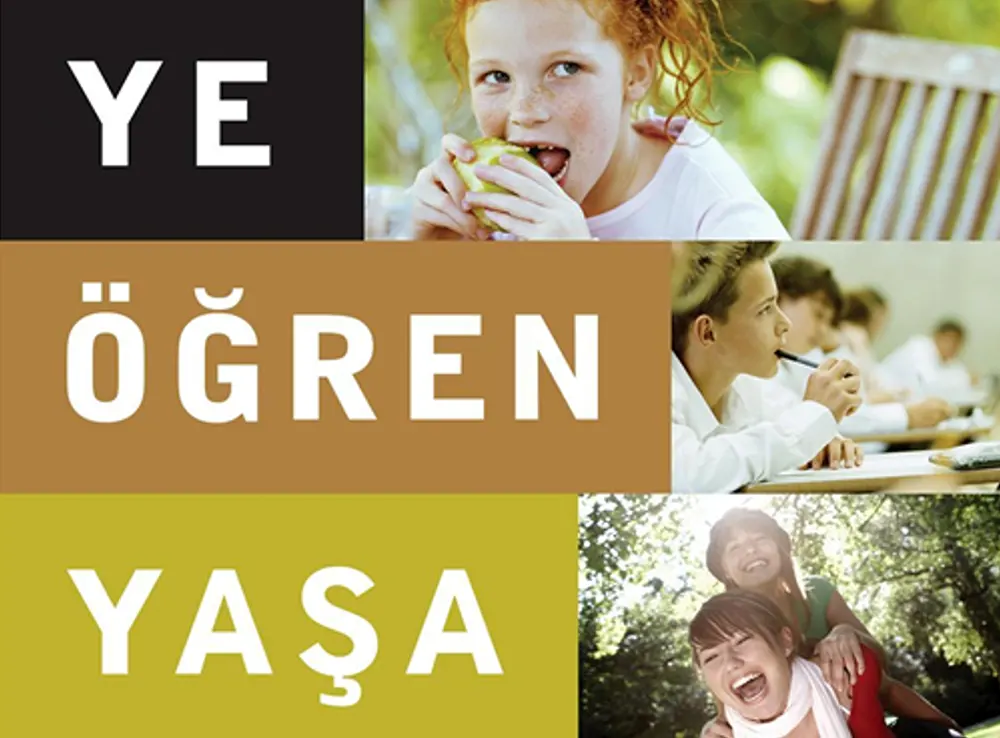The most crucial factor for the physical and mental growth and development of children is a healthy and balanced diet. The eating habits acquired during school age, in particular, tend to last a lifetime. Therefore, our schools emphasize the importance of adequate and balanced nutrition for our students and provide the necessary facilities in this regard.
The most crucial factor for the physical and mental growth and development of children is a healthy and balanced diet. The eating habits acquired during school age, in particular, tend to last a lifetime. Therefore, our schools emphasize the importance of adequate and balanced nutrition for our students and provide the necessary facilities in this regard.


While serving our students, EUREST follows operations with the standards listed below:
- Menus are planned by dietitians and food engineers specializing in the principles of healthy and balanced nutrition, considering the daily calorie needs of our children's age groups and paying attention to the selection of seasonal vegetables/fruits.
- In line with the recommendations of scientific health authorities, menus adopt the "Healthy Plate" model, which includes all basic nutrients. The Healthy Plate model consists of the 5 basic food groups (1. Milk-yogurt group, 2. Meat-egg-legume group, 3. Vegetable group, 4. Fruit group, 5. Grain and bread group). According to criteria, each meal aims to cover at least 3 of these food groups.
- The consumption of high-fiber foods that support cognitive development and a healthy digestive system, such as salads, fruits, whole-grain foods, and legumes, is encouraged. Additionally, the aim is to reduce the consumption of simple carbohydrates by ensuring that the daily energy intake from simple sugars is below 10%.
- Considering the increased protein requirements of our growing children, our menus provide the use of high-bioavailability proteins. In addition, care is taken to include food items such as cheese, yogurt, and milk, which are essential sources of calcium for bone, dental health, nervous system, and cognitive development.
- Menus are decided and approved collectively by the Food Committee. The approval of the Food Committee is required for menu changes.
- Raw materials used in the dining halls are supplied from Turkey's most reputable companies, and suppliers are subject to routine checks.
- Oils and cooking techniques that have negative effects on heart and vascular health are strictly avoided in meals. Instead of these, vegetable-based liquid oils and olive oil, which contain low saturated fat and beneficial fatty acids for health, are used.
- The healthiest cooking techniques, such as boiling, steaming, grilling, and baking, are applied to prevent the loss of vitamins and minerals in foods during preparation. Frying and cooking techniques that pose risks to health, increase the risk of disease, and increase trans fat content are avoided.
- Fresh or frozen vegetables and potatoes are cooked in conventional ovens using minimal amounts of oil.
- During periods of high ambient temperatures (between May and November), the production of foods that may pose a risk due to their microbial load, which is risky in terms of production technique, is strictly prohibited.
- The "fat and salt" amounts of all served meals are limited and standardized, taking into account values accepted by international health authorities. Compliance with these standards is carefully monitored, and an 'Illuminated Warning System' developed in a computer environment is automatically checked.
- Cooked meals are kept warm until served in the warm holding mode and served at temperatures above 65°C.
- Utmost attention is paid to hygiene in meal service, using porcelain plates and glass cups.
- Small equipment such as forks and knives, washed in dishwashers, are automatically dried and polished without touching by hand, using natural materials.
- The quality management system is strictly regulated from the menu planning stage to the presentation of the meal and the storage of sample samples, in line with the requirements of standard regulations. At the same time, our kitchens are regularly audited by corporate laboratories.
- Kitchen and staff are regularly inspected for hygiene by internal and external auditors. They are also always ready for inspection by the school administration.
- Materials used in cleaning and disinfection processes in the kitchen are selected from globally approved companies. Daily disinfection processes are regularly recorded.